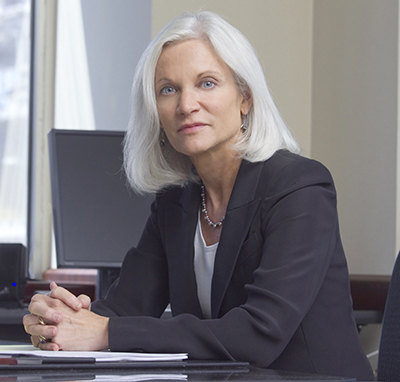The announcement was clear, and it brought joy to the hearts of medical marijuana supporters and tokers everywhere: The federal government would no longer interfere with states that legalize marijuana and would no longer go after cannabis businesses that follow state law.
Yet some high-ranking government officials responsible for enforcing this new policy don’t seem willing to acknowledge it.

Case in point: Melinda Haag, U.S. attorney for the Northern District of California. Long considered a pitbull for the anti-drug cause, Haag has used both civil and criminal prosecutions to shut down legal pot shops.
What’s more, she’s still doing it, months after the Department of Justice ordered her and other prosecutors to back off. Even while other U.S. attorneys in California drop marijuana cases, she is still aggressively pursuing two of the biggest anti-pot cases in the state, exactly the kind the Obama administration said it would no longer prosecute.
Those cases involve medical marijuana dispensaries in Oakland and Berkeley. The Oakland shop, Harborside Health Center, and the Berkeley shop, Berkeley Patients Group, were each sued by Haag, who wants to close them and seize their property via a legal tactic known as asset forfeiture.
Henry Wykowski, attorney for the Berkeley Patients Group, said he met with the judge in the case and a representative of Haag’s office on Oct. 29.
“The judge questioned why this case was proceeding in light of the Cole Memo,” Wykowski said. “The US Attorney had a very difficult time articulating an answer.”
Haag refused a request to send the case to mediation, saying she intended to go to trial. A trial date has been scheduled for the end of 2014 in the Berkeley Patients Group case.
Both Harborside Health Center and Berkeley Patients Group have always been in full compliance with state and local regulations. Indeed, they’ve been cited as model businesses and good neighbors. The owner of Harborside, Steve DeAngelo, is one of the biggest players in the national cannabis industry.
After Haag sued Harborside, the City of Oakland reacted by suing Haag, saying Harborside should be allowed to continue helping patients. Haag tried to get the suit dismissed, but the city appealed, and the case isn’t scheduled to be heard until late 2014. In the meantime, Harborside can continue to do business.
The new policy announced by the feds set out several priorities that states with legal weed must meet. If they don’t, prosecutors may intervene and prevent legalization. Those priorities include everything from keeping pot away from kids to preventing gang and cartel violence.
Berkeley Patients Group “is in compliance with each and every one of those — unequivocally,” Wykowski said. “So why is this action continuing? It’s even more egregious with Harborside.”
Haag’s rationale is that Harborside is too big and Berkeley Patients Group is located too close to a preschool – a claim Berkeley Mayor Tom Bates rejects. The DOJ’s new policy, announced in a memo dated Aug. 29, said prosecutors would no longer target pot shops solely because of their size. Yet Haag appears to be doing just that.
 California Marijuana Market Breaking "Marijuana News" from CA
California Marijuana Market Breaking "Marijuana News" from CA





